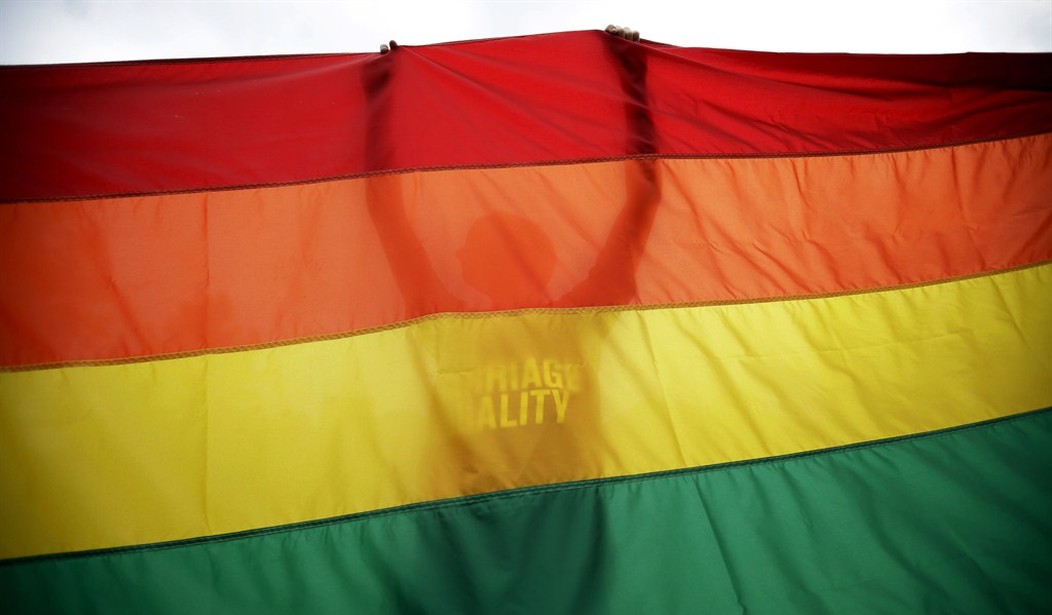ON OCTOBER 7, the Ninth Circuit Court of Appeals struck down Idaho's ban on same-sex marriage. On Oct. 15, county clerks in the state for the first time issued marriage licenses to gay and lesbian couples.
Then, five days later came startling news out of the Idaho resort town of Coeur d'Alene: Two Christian ministers, owners of the Hitching Post Wedding Chapel, had reportedly been told by local officials that they were now required to perform same-sex weddings, or risk fines of up to $1,000 and as much as six months in jail if they refused. Under the city's antidiscrimination ordinance, the Hitching Post is considered "a place of public accommodation," and refusing to marry couples on the basis of sexual orientation was no longer a legal option.
So the two ministers, Donald and Evelyn Knapp, filed a lawsuit, seeking to block the city from forcing them to host same-sex ceremonies in violation of their sincere religious beliefs. "The Knapps are in fear that if they exercise their First Amendment rights they will be cited, prosecuted, and sent to jail," their attorney told reporters.
At first blush, the story seemed to confirm the grimmest forebodings of those who have warned that the gay marriage juggernaut will roll right over religious liberty concerns. Was the government really threatening to jail clergy who refused to perform same-sex weddings?
Recommended
The short answer: No, it hasn't come to that — at least not yet. The Knapps weren't charged with any violation, and since they recently reincorporated the Hitching Post as an explicitly "religious corporation" under Idaho law, it seems doubtful that any prosecutor is seriously gunning for them.
But Coeur d'Alene isn't ruling out the possibility, either. Only if the Hitching Post truly operates on a not-for-profit religious basis, City Attorney Michael Gridley wrote in an Oct. 20 letter, would the Knapps be legally exempted from the antidiscrimination ordinance "like any other church or religious association." Conversely, if their wedding chapel provides services "primarily or substantially for profit and they discriminate in providing those services based on sexual orientation," they could be cited for breaking the law.
Should they be?
Religious convictions haven't sheltered florists, bakers, and other vendors who have declined to provide their services for same-sex ceremonies. The Supreme Court earlier this year let stand the penalty imposed on a New Mexico photographer who turned down a request to shoot a lesbian couple's commitment ceremony. The American Civil Liberties Union argues that wedding chapels, like bakeries and photo studios, are bound by nondiscrimination law, regardless of the owners' moral beliefs. By that argument, it makes no difference that the owner of a company is an ordained minister. An operation like the Hitching Post isn't a ministry, the ACLU would say, it's a business — and the First Amendment can tell the difference.
Yet there is considerably more to the First Amendment than the unique protection it extends to churches. The freedom of expression it enshrines secures the right to speak no less than the right not to speak. Time and again the Supreme Court has confirmed that government may not force Americans to utter words they disbelieve or deny.
"If there is any fixed star in our constitutional constellation," Justice Robert Jackson wrote in a landmark 1943 decision that struck down a law compelling students to recite the Pledge of Allegiance, "it is that no official, high or petty, can prescribe what shall be orthodox in politics, nationalism, religion, or other matters of opinion or force citizens to confess by word or act their faith therein."
Whatever one's views on same-sex marriage — or on nondiscrimination statutes generally — it is unfathomable that ministers could be forced by law to pronounce the words of a marriage ceremony against their will. That they are being paid to perform the ceremony doesn't diminish the significance of the words they are saying, or erode their constitutional liberty to choose not to say them.
Supporters of same-sex unions have nothing to gain by forcing anyone, least of all clergy members, to officiate at weddings when it would violate their principles to do so. That is "just something we don't do in a liberal society," insists Andrew Sullivan, a stalwart advocate for gay marriage. Concerns about what "marriage equality" is doing to religious tolerance and dissent run deep; surely the best way to allay those concerns is with respect and goodwill. As same-sex wedlock comes to Idaho, it is in everyone's interest that freedom of speech and conscience not be driven out.
























Join the conversation as a VIP Member